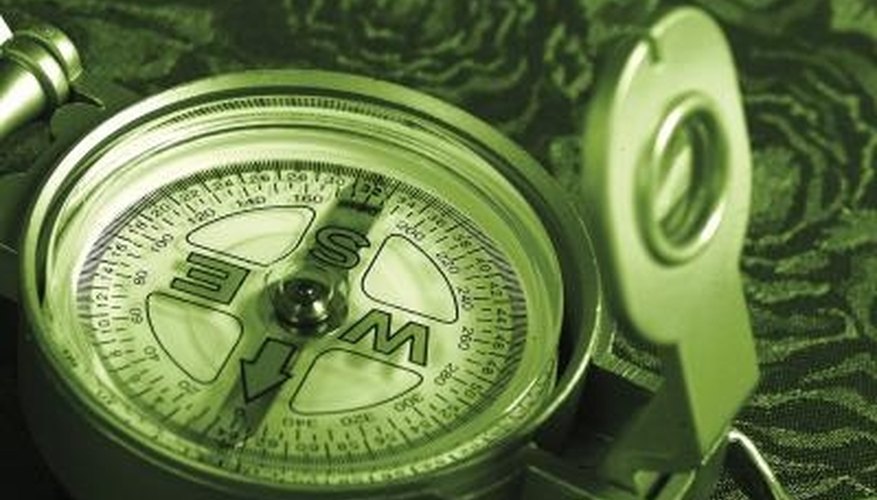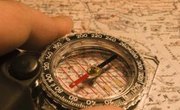
A compass is a navigational device that uses Earth's magnetic field to help determine geographical position. The ancient Chinese created the first compass, and evidence suggests the Vikings of northern Europe used a crude compass in the 12th century. While modern global positioning systems have made determining geographical position easier and more accurate, there are still benefits to using a compass, not least of which is that they do not require any type of power source.
Navigating in the Unknown
It is one thing to navigate from a position you are familiar with, but if you are in unknown territory you can use a method called triangulation. First, choose two distinct points of reference in your surroundings. For instance, identify a feature to the northeast and another to the southeast. Next, use your compass to record their directions in degrees from your position. Try to identify the two features on your map, and when you have done so, draw lines from the datum points corresponding to the angle from each position you have recorded. You can identify your position by where the lines intersect.
Portability
One of the benefits of a compass is that it is portable. The slim and compact dimensions of most modern compasses enable you to add one to a pack of any size without worrying about additional weight. Most compasses can fit in your pocket. Some come with straps so you can hang them around your neck or wrist to keep from losing them.
Self-Sufficiency
When using a compass, you can establish your direction and position on your own. Even if you are alone in the wilderness and far away from a town or even a homestead, as long as you have a compass and an accurate map you can happily navigate across the environment without requiring the aid of another person and without needing an electrical power source.
Rapid Orientation
Another benefit of using a compass is the rapidity with which you can take a reading. While a modern global positioning system, or GPS, can give a more accurate reading faster, you can still take out your compass, pinpoint your current position on a map, and establish your future trajectory in a matter of minutes. On the other hand, using a transit to establish your position can take between 10 and 15 minutes, and offers no real advantages in accuracy.
References
Writer Bio
Cathel Hutchison began editing and writing in 2007 and has worked with various institutions and publishers, including editing courses for the Open University and captioning for the cultural archive "Am Baile." Hutchison holds a Master of Letters in history from the University of Aberdeen and a Master of Arts in American studies from the University of Edinburgh.



